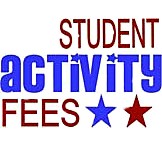In December, I think we all watched with disbelief the footage of Clay Duke, the disgruntled husband of a former school employee who opened fire on school board members in Panama City, Florida. Duke’s wife had been fired from her special ed teaching job in the Florida school district. The school board video showed Duke complaining about taxes and his wife’s firing before shooting at close range as the superintendent begged, “Please don’t.” There were several rounds exchanged with a school security officer, who wounded him, before he took his own life. Amazingly, no one else was injured during the shooting.
The Florida shooting was a wake-up call for many school districts around the country; many of which are considering increasing security at public meetings. Various security options considered include security guards, police presence, or requiring all meeting attendees to pass through some type metal detector or the use of a handheld detector. Protection at school board meetings is not just for the elected officials. As the discussion on our school district’s budget deficits increases, with discussion of property tax increases, programming cuts and possible staff reductions, there are more parents, teachers, staff, citizens, press, and sometimes students attending the meetings. As schools nationwide face this financial education crunch, heated moments and frustrated community members cannot be far behind.
Unlike Tredyffrin’s township meetings, which are held in the same building as the township police department, the T/E School Board meetings are held at the high school or the school district office. The Downingtown School District has made the decision to increase security at their school board meetings. Their decision to have security at regularly scheduled school board meetings was based on the Florida school board shooting as well as the recent shooting in Tucson, Arizona of Rep. Gabrielle Gifford. Starting this week, Downingtown School District has contracted with their police department for security at their meetings.
Although I am certain that T/E School District has an emergency management plan, I wonder if there is anything specific to public board meetings. You cannot predict or prepare for random acts of violence. However, circumstances that have happened nationwide in recent memory and given the time of which we live, unfortunately require this type of discussion.
Should school boards assess and appropriately upgrade awareness, along with security and preparedness measures, for their board meetings? Certainly. School districts need to be proactive (rather than reactive) in examining prevention, security and preparedness practices. We understand that no school district has a blank check for security or any other support service. School districts everywhere are under unprecedented financial crunches. But it is during a time when society is under intense economic pressure that violence and related security risks will likely increase.
I am curious, has T/E School District reviewed its public meeting security policies?
